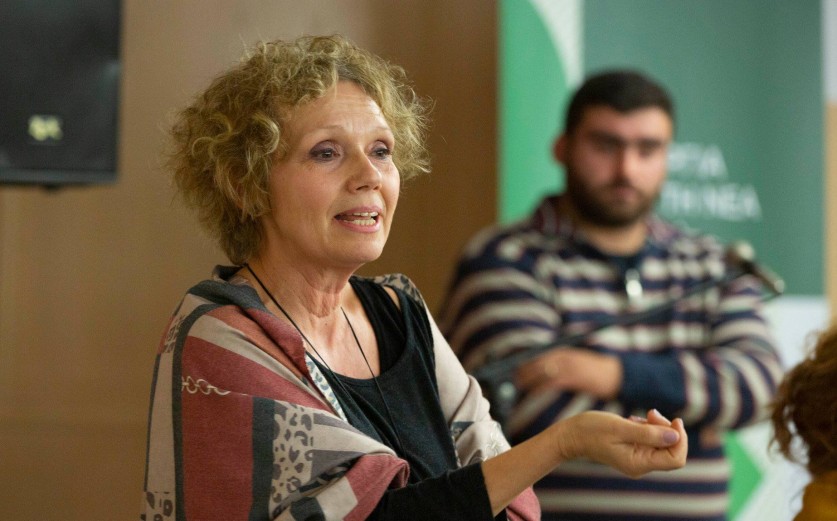Meet Falia
Falia Economou, 60, was born and lives in Athens. She is a professor in the Faculty of Crop Science at the Agricultural University of Athens (AUA), where she teaches courses on weed management, crop physiology, and medicinal and aromatic plants (MAP). “Since childhood, I’ve loved nature and have been interested in studying the environment, so AUA was my first choice,” Falia said. “I study crop development and the factors which affect the productivity of the field crops as well as the production of high-quality products. I wrote my dissertation on the biology and control of Johnsongrass (Sorghum halepense), the most serious weed of the field crops, and studied ways to protect crops from the weeds.” Falia’s other research interests include drought tolerance assessment, mitigating the effects of climate change on field crops in Greece, and agrobiodiversity. She designed and implemented the MAP program at AUA.
The Medicinal and Aromatic Plant Program
For the past decade, Falia has studied MAP, which are quite prosperous crops for the Greek rural economy. There is great demand for MAP from pharmaceutical companies because of their various health benefits, and the Greek climate favors the production of high-quality MAP products. “In my opinion, research on MAP is not being disseminated, so the advanced knowledge and the results from our experiments do not improve farmers’ yields or the quality of their products,” Falia said. “Most importantly, farmers do not have access to innovation related to the MAP sector, which is demanded by international market standards.” In response, Falia designed an integrated two-year training program for “New Agriculture for a New Generation” to enable young farmers to learn everything they needed about MAP from farm to market.
The MAP program has two phases. Last year, in the first phase of the program, AUA adopted farms in four regions of Thessaly: Larissa, Vrinena Almiros near Volos, Farsala, and Grammatiko near Karditsa. AUA educated 60 farmers and young people from these areas who were interested in developing MAP. The beneficiaries received 54 hours of theoretical training and 54 hours of practical training, which included instruction on farming issues (propagation, fertilization, irrigation, weed control), processing issues (how to harvest and dry, for example), the development of a business plan, and marketing. “We visited the beneficiaries’ farms on Fridays and Saturdays,” Falia said. “We also organized trips into the mountains to identify wild cultivars and visited certified greenhouses and industrial distillation companies.” Falia is now administering this phase of the program to 15 new beneficiaries in Trikala.
At the end of the first phase, AUA assessed its initial batch of 60 beneficiaries by asking them to each write a business plan. Falia and her colleagues then selected 5 beneficiaries from each region to participate in the second phase of the program, which runs until October. The beneficiaries in each region will work together to produce an innovative product from their MAP that they will then bring to market.
Falia also plans toestablish an oregano crop at AUA’s Experimental Farm in Kopaida so that she can teach students how to cultivate two types of oregano. A training course in mid-March will cover propagation material in the greenhouses, and a second course during harvest time will cover best farming practices, fertilization, and irrigation.
“Our long-term vision is to organize the sector and establish a network of farmers who will continue to develop it, taking advantage of the many opportunities available in Greek and European markets for these products,” Falia said. “MAP offer so many possibilities: pharmaceutical and cosmetic products, collaborations with cheesemakers. The farmers just have to keep developing and innovating their certified indigenous species.”

